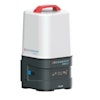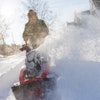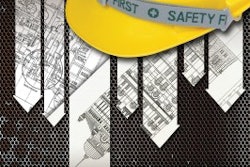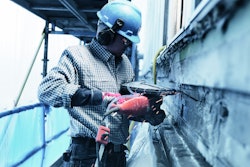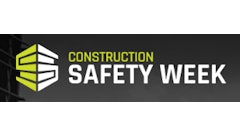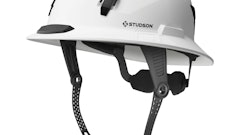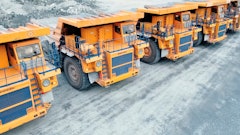
Are We The Biggest Losers?
Do you watch NBC's Biggest Loser? Contestants join the show to have professional trainers, doctors, dietitians and actors help them lose weight. The cameras roll as competitors engage in brutal workouts, tearful counseling sessions and public weigh-ins with Texas stadium-sized personal scoreboards. The transformations can be amazing.
But like many weight-loss stories, some contestants gain the weight back. It's easy to keep the weight off with 24-hour supervision - the trainers provide constant motivation, the doctors monitor your vitals, the dietitians advise every meal and the actors… well, the actors don't do much of anything.
The true test comes when all that professional oversight disappears. Consistently adopting the new behaviors is the challenge. The contestants want to keep the weight off, but without changing their behaviors they will return to the same foods and the same habits that led to the weight gain in the first place.
This weight gain/loss/gain cycle isn't due to a lack of thought. These contestants didn't forget about the what they should be doing. The problem is not in the thinking. The problem is in the behaving.
Sometimes you have to act your way into a new way of thinking. Quit thinking about. Just do it.
Jobsite Safety is a lot like The Biggest Loser. Just like the contestant that loses weight and then gains it all back, our jobsites can experience positive safety gains with focus and education. But as time passes, the necessary behavior changes haven't taken root, and we end up back where we started.
And like the Biggest Loser who gains back weight, our safety failures are not due to a lack of thinking. OSHA, the AGC and NIOSH - and numerous other organizations - contribute plenty to safety thought leadership. But we need more behavior leadership.
OSHA reports that 35 percent of all construction-related deaths are due to Falls. In 2010, 260 constructions workers died from falling from someplace relatively high to someplace lower.
Unsurprisingly then, of the top 10 most frequently cited OSHA standards violated in fiscal year 2011, número uno was scaffolding and número dos was fall protection. This is a cause and effect relationship.
There are financial penalties for safety failures. OSHA fines, legal fees, loss of productivity and increased premiums all chip away at your bottom line. And if a rash of injuries lifts your Mod over 1.0 you may not be able to bid on new work, crippling your top line growth, too.
Act Your Way to a New Way of Thinking
So how can we, the construction industry, begin to act our way into a new way of thinking?
Here are three3 simple things you can say on the jobsite tomorrow to impact safety in a new way. What follows are three Spanish words that will drive safety accountability.
Why Spanish? Hispanics are nearly twice as likely to be injured or killed on our jobsites due to language and cultural barriers. These three words will bridge the language gap. And by acknowledging these Hispanic workers' existence you will begin to remove the cultural barriers. By refusing to allow language barriers to become safety barriers, you will show you care.
Don't know any Spanish? No worries. These words work perfectamente, or perfectly, with universal hand gestures. You can yell these words and then point at the thing in question.
¡CUIDADO!
(kwee-DAH-doh)
careful
If you can only afford one tool in your bilingual Safety toolbox, Cuidado is the one to buy. You can make a positive impact on safety by doing nothing more than saying Cuidado a few times every day to Hispanic workers. Everyone on the job can use a reminder to work more safely - Cuidado is a one-word language barrier-busting method for your Spanish-speakers.
¡PÁRETE!
(PAH-ray-tay)
stop
If you catch an unsafe act in progress, you probably can't stop time like Zack Morris in Saved By The Bell and quickly find a translator. You need to be prepared to stop the dangerous situation immediately. Parete literally means "you stop." When you yell this loudly enough, every Spanish speaker on the job will instinctively stop whatever it is they are doing.
CHÉQUELO
(CHAY-kay-loh)
check it
Spanglish is part of our jobsites and it's easy to remember. Chequelo means "Check it." The "cheque" part is easy to see and LO is a catch-all for the word "it." Use this helpful phrase when asking Spanish speakers to double check how their harnesses are tied off.
Commit to acting your way into a new way of thinking. A high-impact way to do this is by bridging the language gap with Hispanic workers on your jobsite as they are disproportionately more likely to be injured or killed on your job.
Start tomorrow. Start with Cuidado. Say it to three different groups of Hispanic workers and see what happens. Yeah, it may feel weird as new things often do. That's ok. Getting out of your comfort zone is important. Remember, our collective comfort zone involves the deaths of 260 workers a year.
When 260 co-workers die each year, we are all The Biggest Losers. We lose large chunks of our three most critical strategic resources: capital, talent and time.
So here's to acting our way into a new way of thinking about safety. The transformation will be amazing.
Bradley Hartmann is el presidente and founder of Red Angle - a Spanish language training firm focused exclusively on the construction industry. He can be reached at [email protected] and www.redanglespanish.com.



